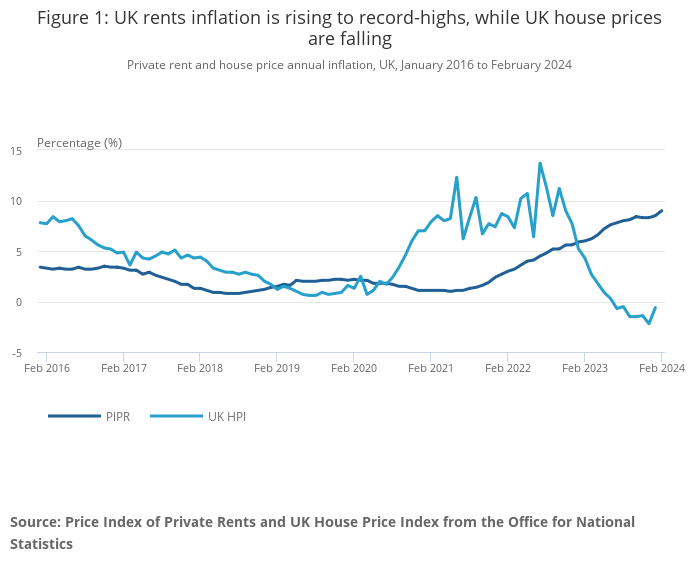UK rents skyrocket at fastest rate on record as tenants hit by ‘cost of renting crisis’
The average monthly rent in the UK is now £1,238, which is £102 higher than 12 months ago
Your support helps us to tell the story
From reproductive rights to climate change to Big Tech, The Independent is on the ground when the story is developing. Whether it's investigating the financials of Elon Musk's pro-Trump PAC or producing our latest documentary, 'The A Word', which shines a light on the American women fighting for reproductive rights, we know how important it is to parse out the facts from the messaging.
At such a critical moment in US history, we need reporters on the ground. Your donation allows us to keep sending journalists to speak to both sides of the story.
The Independent is trusted by Americans across the entire political spectrum. And unlike many other quality news outlets, we choose not to lock Americans out of our reporting and analysis with paywalls. We believe quality journalism should be available to everyone, paid for by those who can afford it.
Your support makes all the difference.UK rental costs have increased at the fastest rate on record as the housing market continues to be impacted by constricted supply and higher interest rates.
The average UK rent increased by 9 per cent in the 12 months to February, up from 8.5 per cent in January, the Office for National Statistics (ONS) said.
It is the highest annual percentage change since the UK data series began in January 2015. Private rent inflation was highest in London, at 10.6 per cent, and the lowest in the North East at 5.7 per cent.
The average monthly rent in the UK is now £1,238, which is £102 higher than 12 months ago.
However, average house prices decreased by 0.6 per cent in the 12 months to January 2024. In England, they decreased by 1.5 per cent as they also did in Wales by 0.8 per cent, but increased in Scotland by 4.8 per cent.
The rent increase of 9 per cent is significantly above the 3.4 per inflation rate and indicates that tenants are still being hit with enormous cost increases. In England and Wales, 5m households are private renting, according to the last census.
Is this an issue that has impacted you? Email joe.middleton@independent.co.uk

Luke Murphy, associate director for infrastructure and housing at the ippr, told The Independent the UK housing market’s structural problem of a lack of supply is still the primary driver in rent increases.
“It’s a fundamental issue of supply, we have not been building enough homes for decades and that’s all kind of homes. It’s not just about the number, it’s about building many more genuinely affordable social homes.
“Our analysis shows there is a four million homes shortage over a decade and we are nowhere near building the number of affordable homes that we need. And that’s having the impact on rents we are seeing.”
Cara Pacitti, Senior Economist at the Resolution Foundation, said that the average rent in the UK is now a fifth higher than pre-pandemic in February 2020.
“With inflation falling and earnings growth cooling we can expect some better news on the horizon, and indeed market data on rental prices for new tenancies has seen slower growth in recent months. However, even if we begin to see rental price growth cooling, private renting will still remain by far the least affordable, least secure and lowest quality housing tenure.”

A further mitigating factor could be the slowdown in the housebuilding sector due to high interest rates, higher costs for raw materials and lower demand.
Financial experts have argued that another issue is the costs that have been passed on to buy-to-let landlords as their fixed-rate mortgages expired and they have started new deals paying much higher monthly premiums. These costs have been passed onto tenants.
Jonathan Gordon, director of wealth management at IP Global, said rental conditions in the UK were “brutal” for tenants at the moment.
He said: “Landlords are facing rising costs, which in turn has led to rent increases for tenants. This creates an extremely difficult situation for renters in the UK, as wages are often not keeping pace with rent hikes.
“While house prices have seen a slight dip, the consistently high demand for housing suggests significant price drops are unlikely.”
And Michelle Lawson, director at consultancy Lawson Financial, said: “These figures make for grim reading but come as no surprise. Landlords in the private rental sector have been crippled by increased costs with higher mortgage rates, huge tax bills and burdensome and costly regulation.
“The unintended consequences of this has meant tenants, some of whom are already financially on the edge, would suffer in the long run.”
Ben Twomey, chief executive of Generation Rent, argued that the price increases are not just down to landlords’ costs going up as half of rented homes do not have a mortgage attached to them.
He said: “These figures are shocking but not surprising – we’ve been feeling the impact of sky-high rents and unaffordable rent increases since 2021 and we have reached the very end of what we can afford.
“As the cost of living crisis apparently eases, the cost of renting crisis is continuing at pace. Renters are being squeezed to their absolute limit and something has got to give; 9 per cent increases in a year across all tenancies is well above the rate our wages are rising, illustrating how badly renters are protected.
“This is not just down to landlords’ costs going up – more than half of privately rented homes have no mortgage attached to them – so clearly landlords are raising the rent just because their tenants have no choice but to pay these prices.
“The government needs to listen to renters and take decisive action to slam the brakes on soaring rents in the worst-hit areas. Outlawing unaffordable rent rises would give renters much-needed breathing space while the government must get to work building many more affordable and social homes to address the shortage that has caused this.”

Join our commenting forum
Join thought-provoking conversations, follow other Independent readers and see their replies
Comments